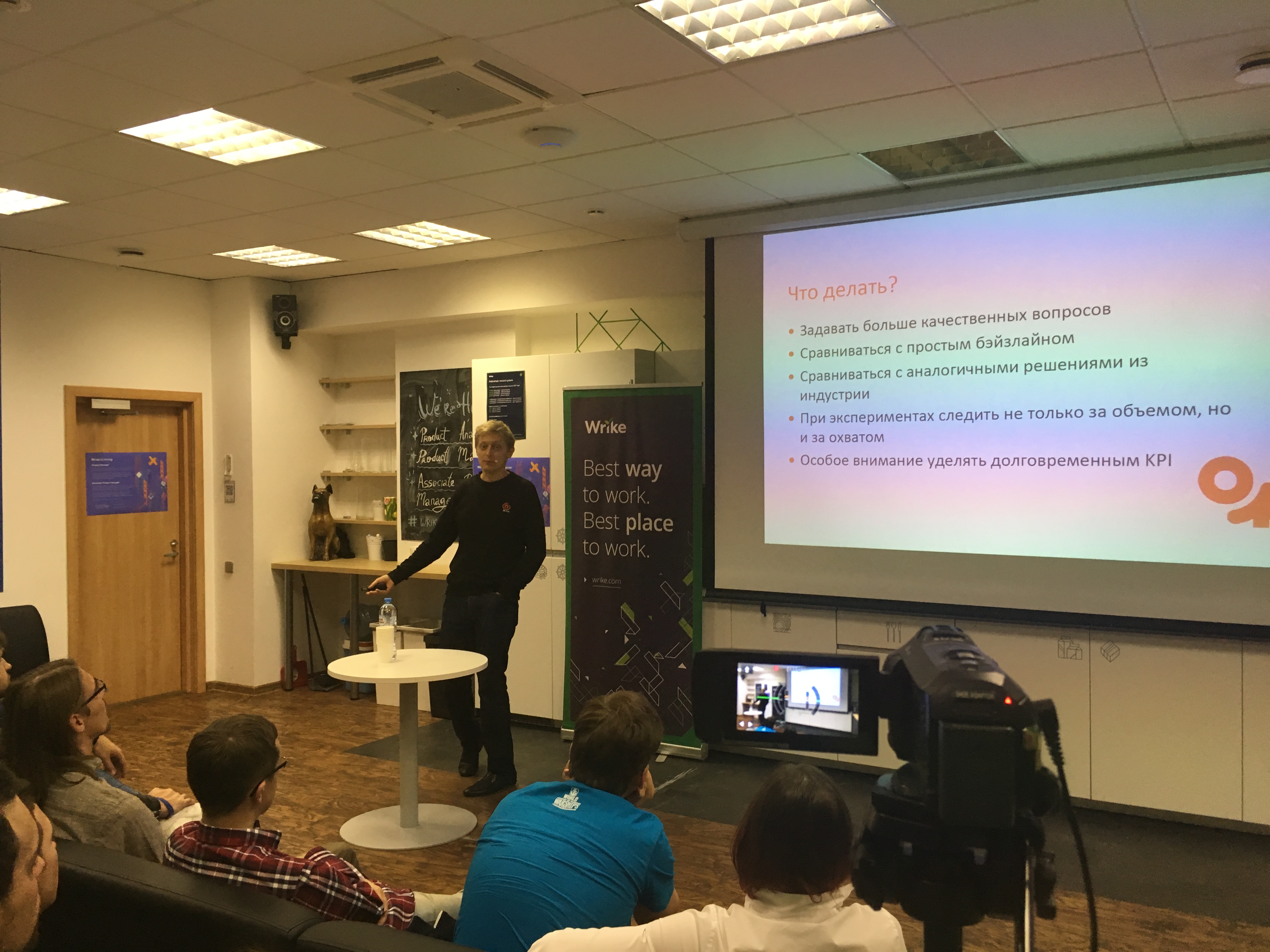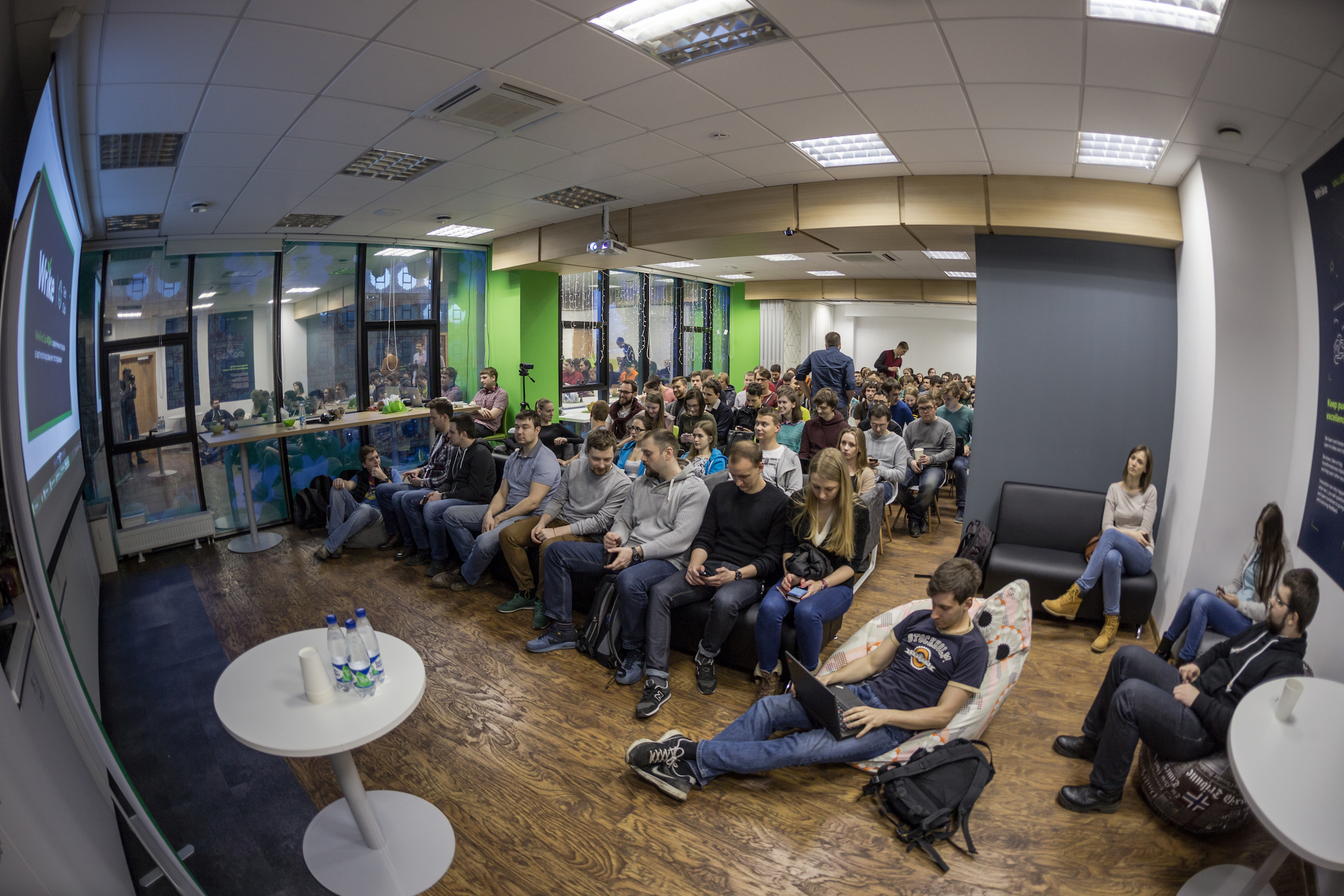“The role of the analyst in making important product decisions”: video recordings of reports from mitap

In late September , a meeting for product analysts and product managers was held at the Wrike St. Petersburg office . The meeting was devoted to issues of qualitative (vs quantitative) analytics, the interaction of analysts and product-overs, the process and tools for validating product changes.
We talked about how to evaluate the quality of products, test product hypotheses, collect relevant user feedback and build a roadmap for product development based on it.
We hasten to share video recordings of reports.
Alexey Smirnov, Wrike “Qualitative analysis in product analytics. How to prioritize food initiatives and effectively assess their impact on customers "

In Wrike the work of the product analyst is closely tied to the interaction with the product owner of each specific functionality (yes, we work on Scrum).
He is actually the right hand of the product manager: he helps with the validation of new ideas and prioritization of existing ones, provides operational support and disseminates knowledge in a team. But often we are faced with a situation where, based on quantitative data, it is not clear how to choose a worthy idea from a thousand? How to finally evaluate its impact on our customers and how to understand what can be improved and is it worth it? At the meeting, I want to share the quality analytics tools that we use at Wrike and tell how they help us understand the real needs of our customers, how to collect their feedback, organize it, interpret and present it to stakeholders.
Dmitry Bugaychenko, Odnoklassniki “The Way of Kamikaze 2.0: How to Survive the“ Hopeless ”Data Science Project“

When Data Science is confronted with the real world, it “unexpectedly” turns out that for the full implementation of the project many roles are required, in addition to the actual date of the Scientists. This is a product development team, and project / product managers, and classic analysts, and, often, top management. Each of them may have their own expectations and their own attitudes towards data science, ranging from blind deification and worship to fierce hatred, but without their conscious participation, the project is doomed to failure. A report on what difficult situations we had to face in Odnoklassniki, how we struggled with difficulties and what came of it.
Bella Gromakovskaya, Pavel Volkov, Wargaming, WOWS project “How innovations in the game are evaluated”

The process of interaction between product analysts and the development team: all stages - from the intent of the game “feature” to evaluating its success after reaching a wide audience. Comprehensive evaluation at the testing stages and after release - data, polls, opinions of the community and game experts. Specific examples of innovation assessment.
